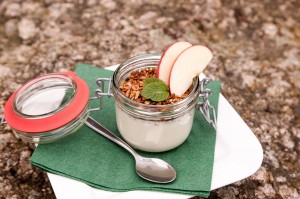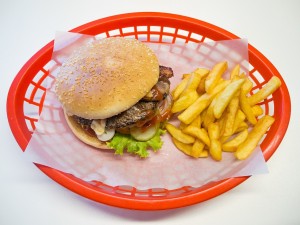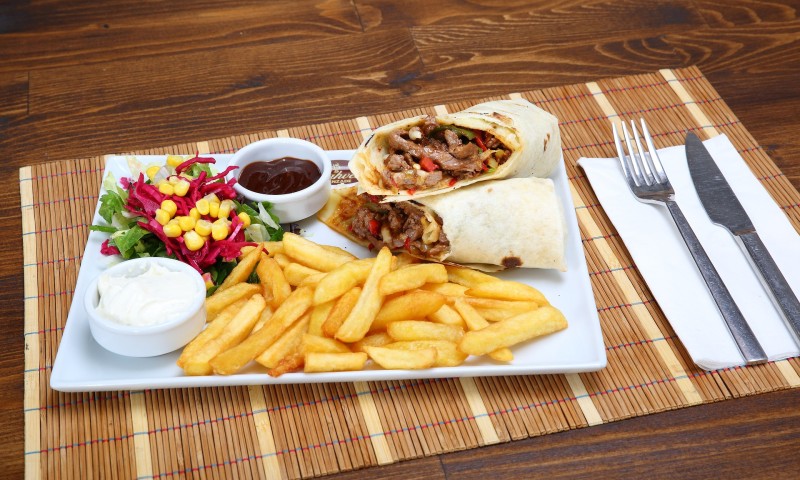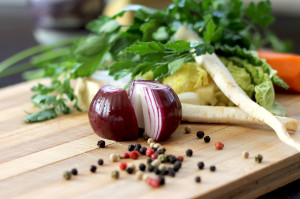While attempting to make healthier food choices, many people tend to rely on convenience foods. What many also don’t realize is how those prepared foods may affect both your health AND your wallet! Relying on dining out does not have to be a way of life, and making the time to prepare your own food is not as tedious as one may expect.
Preparing Your Food vs Eating Out: A Surprising Comparison
Cooking food from scratch is much less expensive than purchasing convenience foods, and it allows you to allocate more expenses for high-quality foods and organic choices (particularly the “dirty dozen” fruits and vegetables). We underestimate how much it costs to eat fast food or junk food, or to even purchase bottled or specialty beverages.
 For a quick example, consider iced tea:
For a quick example, consider iced tea:
- One gallon of iced tea at the grocery store may cost you up to $3
- By brewing your own tea, you’re only spending about 10 cents per serving
Unfortunately, the frequency at which the average American family turns to convenience food is at an all-time high, and future generations are at risk for not knowing how to cook and prepare meals at home. While there are some healthy choices on menus when eating out, the portions offered are still mostly over-sized. Similarly, the calories you consume when eating out add up very quickly! Even restaurants are using convenience foods which add more sodium to their dishes and are less fresh and nutritious overall.
However, these observations don’t just apply to breakfast, lunch and dinner. Let’s also consider snacks. Individual snacks may be convenient, but it only takes a few minutes (and less money!) to measure your own healthy snack portions into bags or reusable containers. For example:
 You can purchase yogurt, nuts, seeds and fruit in bulk to make your very own trail mix or yogurt cups full of simpler and healthier ingredients than you would find when dining out.
You can purchase yogurt, nuts, seeds and fruit in bulk to make your very own trail mix or yogurt cups full of simpler and healthier ingredients than you would find when dining out.- You can buy produce and slice your own fruits and vegetables for quick, healthy snacks that are convenient for your home or office.
- You can make your own hummus and healthy dips to pair with the above snacks. The savings add up significantly!
Also, by shopping local and in season, or even by growing your own vegetables and herbs, you can stay healthy AND shop on a budget too! For additional tips, make sure to plan your meals around the oldest meat and vegetables you have on hand to reduce waste. Preparing a weekly menu is helpful, and it can make recipes and shopping lists a lot simpler to make. While this kind of preparation does take some adjusting to, this is one of the biggest keys to lifestyle change and learning to find success as you manage your weight and health.
Eating at Convenience: A Look to the Future
 Think for a few moments about the long-term costs of poor eating habits. Eating unwholesome, processed foods can result in more medical visits and healthcare costs in the long run. So – you’re not only spending more money on the foods themselves, but you’re also gaining bigger costs to your health, vitality, time and overall well-being! Likewise, these consequences can cost you even more financially by affecting your career goals. A huge advantage to following a healthy lifestyle and eating plan is the ability to live each day to its fullest and to feel the best you can by preventing disease and costs later on down the road.
Think for a few moments about the long-term costs of poor eating habits. Eating unwholesome, processed foods can result in more medical visits and healthcare costs in the long run. So – you’re not only spending more money on the foods themselves, but you’re also gaining bigger costs to your health, vitality, time and overall well-being! Likewise, these consequences can cost you even more financially by affecting your career goals. A huge advantage to following a healthy lifestyle and eating plan is the ability to live each day to its fullest and to feel the best you can by preventing disease and costs later on down the road.
So, the next time you raise an eyebrow at the price of healthy foods and produce at the supermarket, consider how much you are saving and what you are gaining in nutritional value. I believe that you will find that your health is priceless, and hopefully change your mindset when it comes to taking the time and effort to prepare food yourself – not only to save money, but also to control what goes into your body. It’s important to do everything you can to live a healthy life because you’re worth it!
About the Author:
Pam Helmlinger, RD, LDN, CDE, is a registered dietitian and diabetes educator at Centennial Center for the Treatment of Obesity. She provides nutrition counseling to pre-and post-op bariatric patients along with a medical weight-loss program. She earned her Bachelor of Science in Dietetics from Harding University in 2001 and has worked with the program since 2006.








